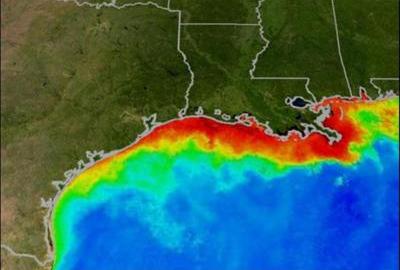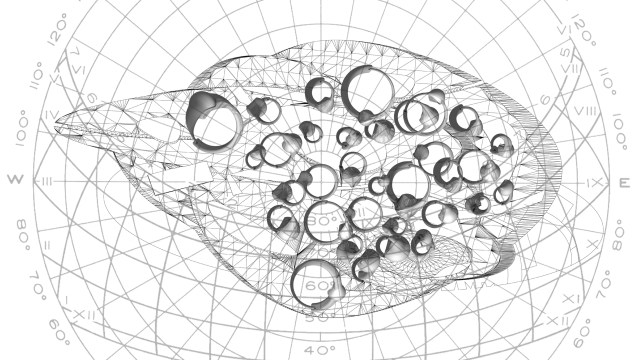Will the Government’s Biofuel Goals Kill Ocean Life?

There are tradeoffs inherent in any energy source, but we hear more than usual about those associated with biofuels—whether the energy at the end of the process is more than the energy inputs. However, a new study in Environmental Science & Technology tackles not the question of energy balance but rather the environmental balance of biofuels, and one thing in particular: fertilizer.
Fertilizer runoff is a environmental worry across in the country, but it’s a looming disaster at the mouth of the Mississippi River on the Gulf Coast. The famed “dead zone” where most marine cannot live had grown to the size of Massachusetts by last year. It happens because algae love the fertilizer that runs down the river to the Gulf Coast—they love it way too much, in fact. The massive algae bloom depletes the area of oxygen that other creatures need to live.
Besides the environmental consequences, the growing dead zone is also a threat to the livelihood of Gulf fisherman. So scientists and government and officials have been trying to bring down the amount of fertilizer runoff and thus shrink the dead zone. But according to this study, ramping up biofuel production to meet the federal government’s mandate of 36 billion gallons by 2022 will crush the progress toward shrinking the dead zone and send even more fertilizer rushing toward the gulf.
Proponents of second-generation biofuels like switchgrass claim these crops are more environmentally benign than the corn we’ve been using to make ethanol for several reasons, including that most require less intensive artificial fertilization to grow. The researchers didn’t discriminate with their conclusion, however: meeting the government standards, even with more switchgrass and less corn, results in a growing dead zone.





